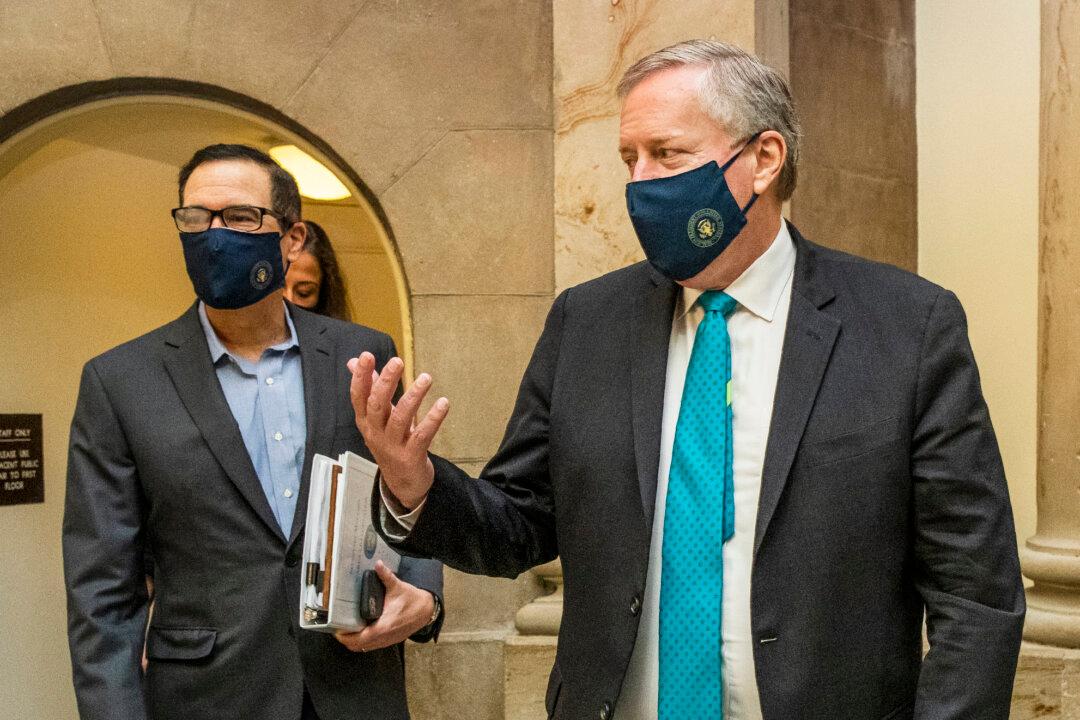Treasury Secretary Steven Mnuchin and White House Chief of Staff Mark Meadows said after about three-and-a-half hours of negotiations on Capitol Hill Saturday with Speaker Nancy Pelosi (D-Calif.) and Senate Minority Leader Chuck Schumer (D-N.Y.) that while good progress has been made on the relief bill, the sides remain at an impasse.
“I think it was the most constructive meeting we’ve had,” Mnuchin told reporters, adding that, “there’s still a lot of open issues.” He said the sides agreed on a subset of issues, including on the need to extend enhanced unemployment insurance in some form and on helping the American labor market recover from the pandemic. Mnuchin also said there was “a lot of bipartisan support” for more relief for small businesses.





